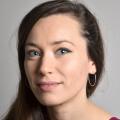NEW technology - including GPS tracking and credit card data - could be used to boost businesses in York.
City of York Council will look into gathering anonymised data from anyone visiting the city centre to find out where they come from, how much money they spend, where they go and what they think about York.
According to a council report, this could involve using information from people's mobile phones, wifi networks, Visa credit card systems and GPS - as well as the existing footfall counters.
Bath has already rolled out a high-tech system to find out more about visitors, according to the report, where it has had a "positive effect" on shops.
It says the Bath branch of L'Occitane used the data to get to the second highest ranked store in the country.
And adds: "In another example of data intelligence application, the Bath BID were able to gain an understanding of coach party start points and attract high-spending visitors via targeted promotional campaigns.
"There are a number of case studies from the Bath BID demonstrating where data intelligence has been used to positive effect."
Andrew Lowson, director of York BID, has welcomed the plans.
And he said the data could help business leaders find out who is not visiting the city - and put on events that might attract different groups of people into York. It could also help make public transport better meet people's needs and even make the city safer.
He said: "The BID believes it is essential to better understand the performance of York city centre, especially as the retail offer evolves.
"There are technology solutions that can give anonymised and aggregated information, which show how people use our city centre.
"This technology provides similar information to that collected by traditional questionnaire surveys, but with larger sample sizes and greater insight.
"If we invest in such technology, we can better understand where people come from, where they go, and how they spend.
"More importantly, we can understand what groups of people are not using the city, to help aid marketing or develop experiences that will encourage them to visit.
"The technology can be used for many other purposes, for example aiding commercial development, transport planning or even event safety plans. In a nutshell, its about helping the city make evidenced based decisions."
The plans have been outlined after problems with the footfall cameras that usually count how many people there are in the city centre.
Over Christmas only one of the cameras was working - the one covering Micklegate - according to the report.
The counters can identify a human shape, but the same person could be registered multiple times if they walk past the camera more than once. And if the counter is plugged in at a shop that then goes out of business, the power is switched off.
The report says some businesses use the data as a guide to buying stock and hiring staff - so problems have a knock-on effect.
The plans will be discussed at a meeting on Monday.
The executive member for economy, Cllr Andrew Waller, will be asked to extend the current footfall counter contract for a further 12 months while the council looks into how a place-based data collection scheme could be rolled out.












Comments: Our rules
We want our comments to be a lively and valuable part of our community - a place where readers can debate and engage with the most important local issues. The ability to comment on our stories is a privilege, not a right, however, and that privilege may be withdrawn if it is abused or misused.
Please report any comments that break our rules.
Read the rules hereLast Updated:
Report this comment Cancel